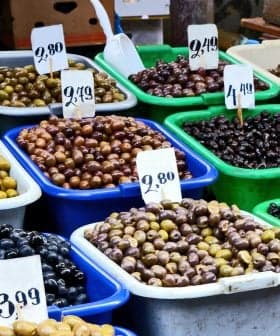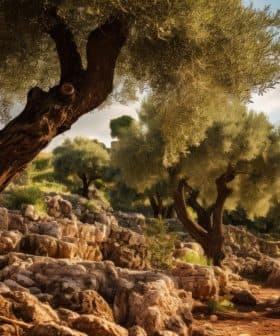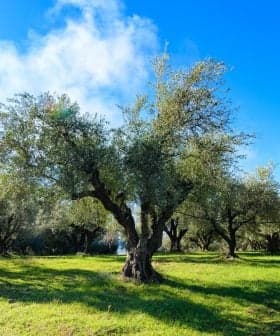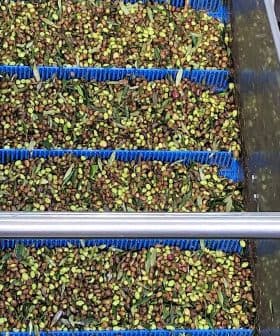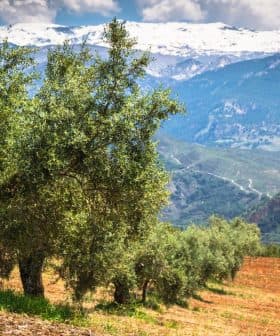Economic Downturn Spurs Return to Family Farms
In the face of economic hardships, many young Greeks return to work the family olive groves that have been kept in their families for generations.
Despite the economic hardships in Greece, many young Greeks are returning to their family olive groves to pursue a better reality, leading to a resurgence in agriculture that now contributes 4.2 percent to the Greek economy. These new farmers, many of whom are well-educated and traveled, are overcoming challenges such as lack of access to federal funds by focusing on high-quality products and direct sales to consumers, exemplified by success stories like Ioanna Kanellopoulou, who won a Gold Award for her olive oil at the NYIOOC. This trend not only represents a financial opportunity for farmers, but also a cultural revival and a testament to the resilience of the Greek people.
One might imagine that ef zin, the Greek term for welfare or more colloquially, “the good life”, would be harder to come by lately in Greece, a country whose economic hardships are well-known to the rest of the world. Since the onset of the crisis, Greece’s GDP has decreased by 25 percent. Household spending has fallen by 40 percent.
Fields of land that for decades were abandoned are returning to be cultivated and productive again.
Many young Greeks are turning to their family olive groves as a means of chasing a better reality. In the 1970s and 1980s, many of these young people flocked to metropolitan centers in pursuit of professional careers.
As the security that used to be provided by these jobs continues to dwindle though, “fields of land that for decades were abandoned are returning to be cultivated and productive again,” says Kostas Liris, an agronomist, olive oil expert and New York International Olive Oil Competition (NYIOOC) panel leader who founded the company Iris IKE to provide consulting in the agri-food industry.
Liris notes that a large proportion of these new farmers are between the ages of 30 and 45, hold a university degree, speak foreign languages, and have traveled the world. Not only are they an erudite section of the population, but “they are not afraid to admit their relatively limited knowledge regarding the land and they usually look for synergies with specialists in order not to make mistakes.”
As a result of these new farmers’ efforts, agriculture now contributes to 4.2 percent of the Greek economy, up 1.1 percent from its share when the crisis began in 2008. According to the Agricultural University of Athens, this contribution is double the figures seen in any other member European Union member country.
While the unemployment rate for people under 25 is 48 percent and 30 percent for those between the ages of 25 and 34, employment in the agricultural sector is on the rise for the first time in 20 years, as per a recent report by the Greek Statistical Service.
In 2008, the proportion of Greek workers employed by agriculture dipped to a 35-year low of 11 percent. In 2015, that number climbed to 12.9 percent, with roughly half of all new farmers coming from cities. Al Jazeera recently reported that the Association of Young Farmers has found that the population of farmers between the ages of 18 and 40 has increased 15 percent since these hardships first befell the nation.
Though the primary sector is experiencing a renewed energy and robust growth as of late, recently converted farmers do not enter re-enter the family enterprise without facing a few hurdles. Greek monetary issues and bureaucracy have made it somewhat difficult for these young people to receive federal funds that are meant to be available for them to use. Banks have ceased loaning money to even successful businesses, and the government sold the Agricultural Bank of Greece to a private bank in order to cover some of the nation’s debts.
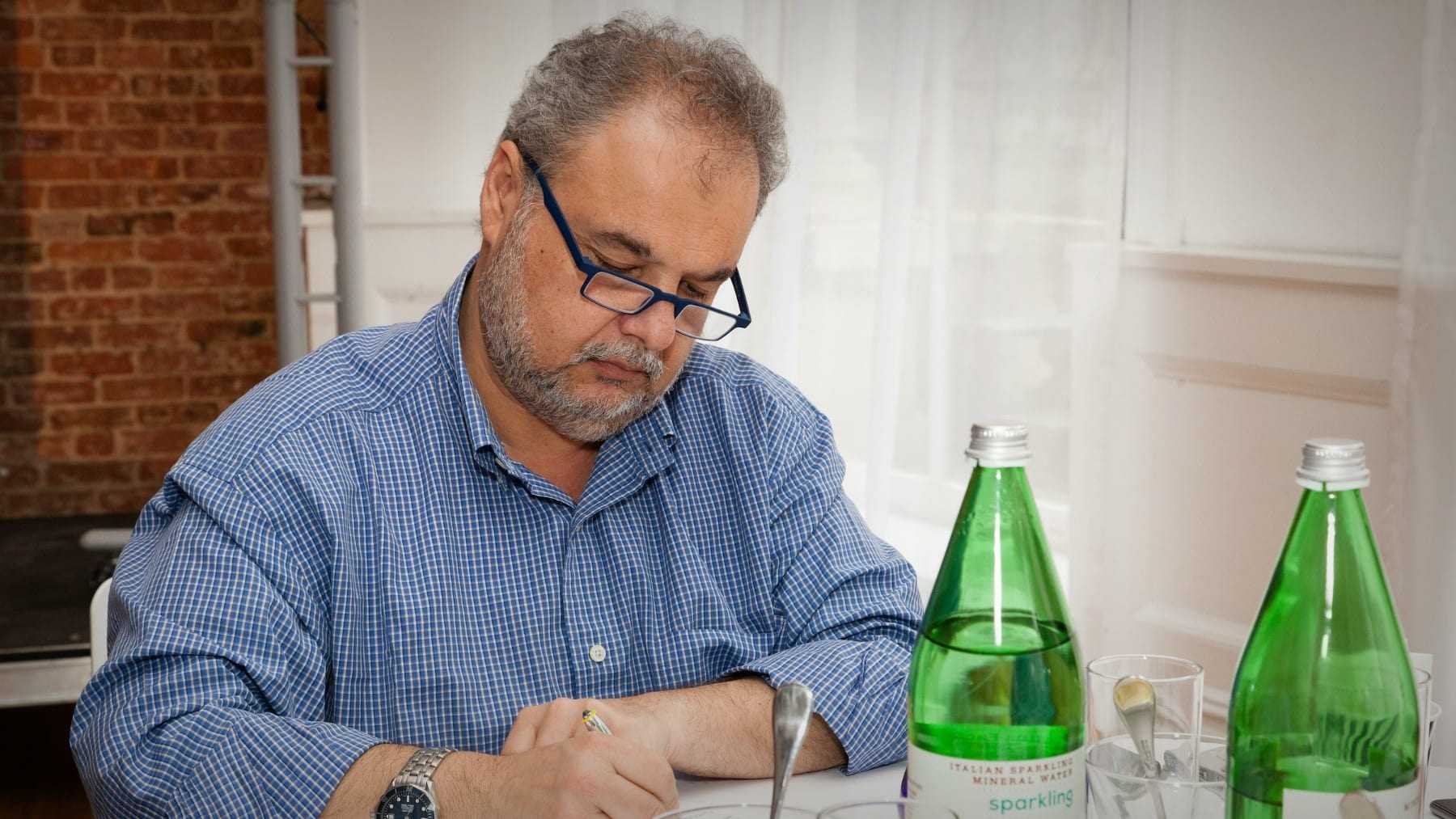
Kostas Liris (Photo: NYIOOC)
Still, the Ministry of Rural Development and Food released a report on April 25th that over 15,000 people applied for the 12,000 available EU subsidies allocated for new Greek farmers this year, compared to 11,400 in 2014 and 8,600 in 2009. This year, the government sought to capitalize off of this growth, raising farmers’ income tax from 13 percent to 22 percent. Higher still, is the 45 percent income tax levied on those individuals whose income exceeds €43,600.
Greek farmers continue to adopt new practices to counteract these difficulties. In the past, farmers sold their olive oil in bulk to countries like Spain and Italy rather than developing their own brands for consumers. Today, Greek farmers take advantage of the extra value added by these operations.
Farmers do not seek to gain profits by producing mass amounts of their products, instead of serving a more prestigious niche market that values high-quality goods. They reach this market sometimes through online shops, but more often through importers and distributors, who yield a smaller profit to the farmers but provide a more cost-effective sales network. They’ve further shown their newfound commitment to independence through a movement known as “Without Middlemen” which, since 2012, has hosted impromptu markets in cities, giving farmers an opportunity to deliver their goods directly to Greek customers. The movement allows farmers to maximize profits while lowering prices for their peers who have been hit just as hard by the crisis.
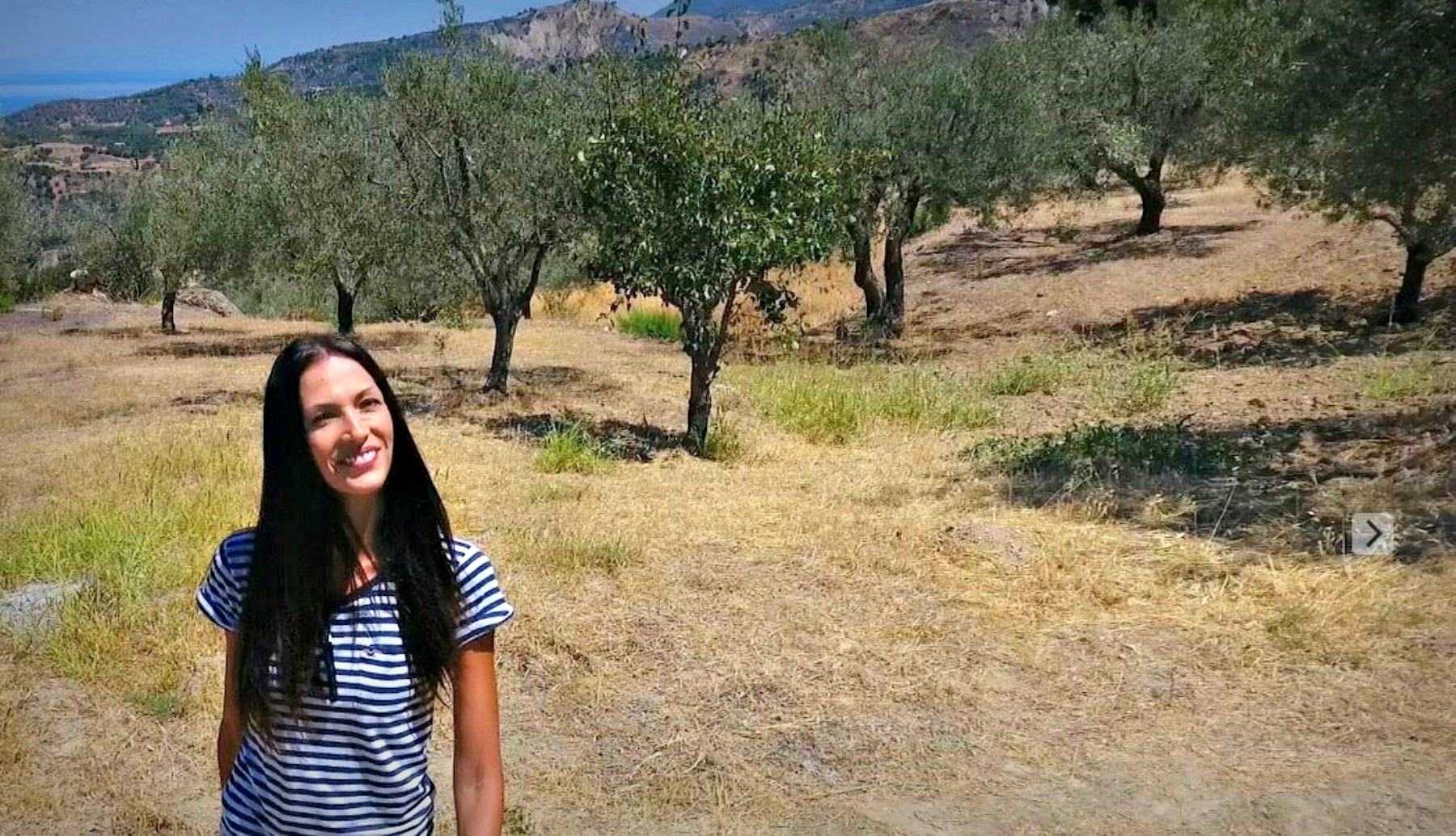
Ioanna Kanellopoulou

Gold Award Winner: My Precious Olive Tree
Perhaps this new trend in Greek olive oil production is best exemplified by Ioanna Kanellopoulou, who began her career as a young journalist and the mother of two children. In this first stage of her professional path, Kanelopoulou found herself working long days for a small salary in a role that didn’t permit much extra time with her family. Looking for her particular brand of ef zin, Kanelopoulou turned her gaze towards her grandfather’s land, aiming to begin producing her own brand of olive oil.
Admitting that, like many of her peers, she knew little about growing olives, Kanelopoulou reached out to Liris for his support in her endeavors. Just a year later, she won a Gold Award at the NYIOOC for her EVOO, My Precious Olive Tree, which she continues to sell online.
While there are a multitude of new olive farmers arising from the ashes of the Greek financial crisis, Kanellopoulou embodies the traits necessary to rise to the top of the competition. She knows the real potential of her land, the market, and, most importantly, how to ask for help from those who are well-versed in re-engineering a faltering olive grove. From this, she was able to create a high-quality, unique product.
Among the political and financial wheeling and dealing that occurs as officials attempt to end Greece’s financial hardhsips, there is a portion of the nation’s population that has committed themselves to getting their hands dirty and finding a better life on their own. The Greek primary sector is not only growing in monetary value but also in the heritage it is handing back to a disillusioned population.
A piece of land and some seeds can not only provide financial stability and superb products, but also a reminder of Greek people’s strength as a whole. In Liris’s own words, “in a fast food world there will always be a place for good food, wine and extra virgin olive oil.”


